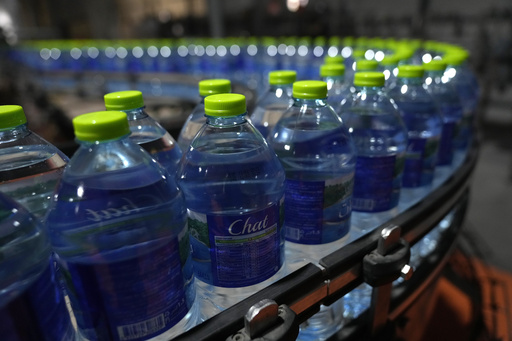In the Israeli-occupied West Bank, choosing a beverage to accompany your meal has taken on a new political dimension. Requesting a Coke alongside your hummus might elicit a reproachful reaction or even the phrase “shame, shame” uttered in Arabic. Instead, waiters are likely to propose Chat Cola, which has rapidly grown in popularity.
Chat Cola, packaged similarly to the famed American Coca-Cola, has gained significant traction among Palestinians who voice their disapproval of U.S.’s unwavering support for Israel during the ongoing conflict with Hamas. Palestinians have increasingly turned to local alternatives like Chat Cola as a form of protest through their purchasing choices.
“No one wants to be seen with a Coke,” expressed Mad Asaad, who works for Croissant House, a bakery-cafe chain in Ramallah that discontinued Coke sales post-conflict. “Everyone’s opting for Chat now. It’s a message.” Following the inflammatory events of October 7, 2023, when Hamas instigated an attack that prompted Israel’s subsequent military operations in Gaza, the boycott against brands aligned with Israel gained momentum across the Middle East, affecting giants like McDonald’s, KFC, and Starbucks.
In the West Bank, this movement resulted in the closure of KFC outlets in Ramallah. However, the most striking development has been the prevalence of Chat Cola, as retail vendors push aside Coca-Cola to make room for the local contender.
Fahed Arar, the head of Chat Cola, remarked from the company’s primary facility in Salfit, “As people began boycotting, they discovered Chat. I take pride in having established a product on par with an international brand.” As the “buy local” sentiment flourished during these turbulent times, Chat Cola reported a surge in sales exceeding 40% over the past year.
While precise market statistics remain elusive due to data collection challenges amid the conflict, anecdotal evidence indicates Chat Cola is making inroads into Coca-Cola’s share. Abdulqader Azeez Hassan, a supermarket owner in Salfit, noted how Chat’s prominence shifted from a niche to a market leader.
National Beverage Company, Coca-Cola’s franchise in the West Bank, employs only Palestinian workers, which means any boycott adversely affects them too, according to its general manager, Imad Hindi. Hindi refrained from detailing the boycott’s financial ramifications, believing they are intertwined with the broader economic downturn and increased security measures that have complicated supply chains.
Coca-Cola did not provide comments on the matter. Nonetheless, the boycott illustrates a surge in political awareness, insisted Salah Hussein, chairing the Ramallah Chamber of Commerce, referencing significant changes post-October 7 and the previous Trump administration.
Donald Trump’s contentious statements fueled regional anti-American sentiment further. Chat Cola capitalized on this wave of emotion, receiving international orders from various continents, shared PR manager Ahmad Hammad. The initiative has grown beyond its niche origins since 2019, rebranding with a nationalist theme.
To meet rising demand, Chat Cola plans to establish an additional production unit in Jordan while diversifying its flavors. Amid Salfit’s bustling factory, recent graduates emphasized their commitment to quality products to ensure lasting consumer support beyond mere solidarity sentiments.
Chat Cola collaborated with French chemists to refine a flavor almost indistinguishable from Coke and adjusted its packaging to evade legal issues, previously challenged by the National Beverage Company in court but ultimately ruled in Chat’s favor.
Distribution efforts extend beyond the West Bank, reaching Israeli cities with significant Arab populations, reflecting a 25% sales increase in those areas after Chat secured kosher certification. However, opponents like Vlad Khaykin, from the Simon Wiesenthal Center, argue that such movements exacerbate tensions instead of fostering unity.
Despite the careful sourcing of materials from international suppliers, navigational barriers remain due to the occupation’s economic constraints, as Israel maintains control over imports and taxes. Arar highlighted the precarious reliance on Israeli administration, overshadowing nationalist motivations.
A recent bottleneck at the critical Allenby Bridge left Chat’s aluminum shipments stranded, leading to temporary production halts with financial repercussions. Businesses like Croissant House faced shortages too, sometimes leading customers back to familiar brands due to limited local alternatives.
“It’s disheartening,” conveyed Asaad. “Our quest for self-reliance continues, but challenges persist.”
